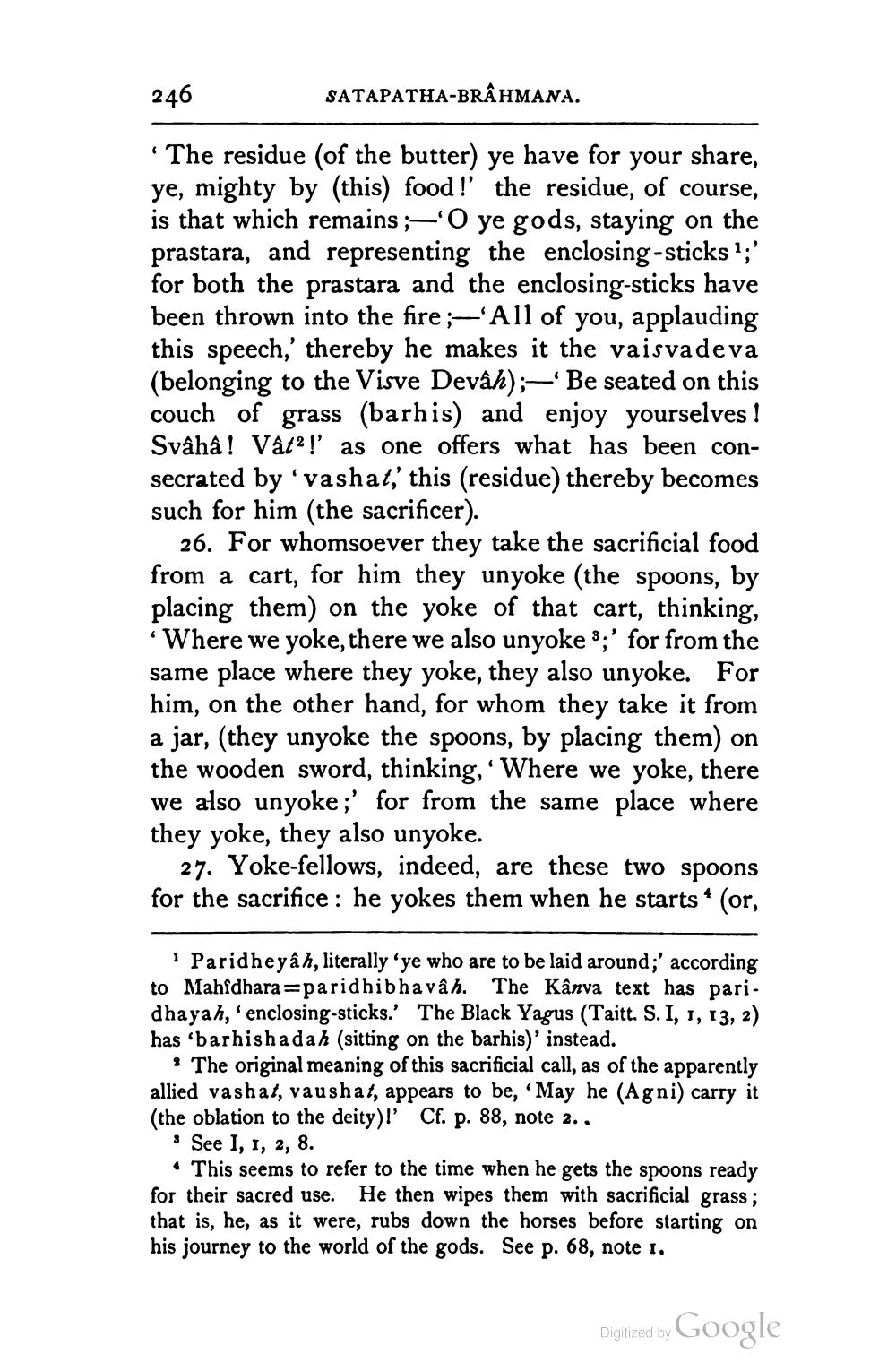________________
246
SATAPATHA-BRAHMANA.
'The residue (of the butter) ye have for your share, ye, mighty by (this) food!' the residue, of course, is that which remains ;-O ye gods, staying on the prastara, and representing the enclosing-sticks 1;' for both the prastara and the enclosing-sticks have been thrown into the fire;-'All of you, applauding this speech,' thereby he makes it the vaisvadeva (belonging to the Visve Devâh);-' Be seated on this couch of grass (barhis) and enjoy yourselves! Svâhâ! Vât!' as one offers what has been consecrated by 'vashat,' this (residue) thereby becomes such for him (the sacrificer).
26. For whomsoever they take the sacrificial food from a cart, for him they unyoke (the spoons, by placing them) on the yoke of that cart, thinking, 'Where we yoke, there we also unyoke 3;' for from the same place where they yoke, they also unyoke. For him, on the other hand, for whom they take it from a jar, (they unyoke the spoons, by placing them) on the wooden sword, thinking, 'Where we yoke, there we also unyoke;' for from the same place where they yoke, they also unyoke.
27. Yoke-fellows, indeed, are these two spoons for the sacrifice: he yokes them when he starts* (or,
1 Paridheyâh, literally 'ye who are to be laid around;' according to Mahîdhara paridhibhavâh. The Kânva text has paridhayah, 'enclosing-sticks.' The Black Yagus (Taitt. S. I, 1, 13, 2) has 'barhishadah (sitting on the barhis)' instead.
The original meaning of this sacrificial call, as of the apparently allied vashat, vaushat, appears to be, 'May he (Agni) carry it (the oblation to the deity)!' Cf. p. 88, note 2..
See I, 1, 2, 8.
This seems to refer to the time when he gets the spoons ready for their sacred use. He then wipes them with sacrificial grass; that is, he, as it were, rubs down the horses before starting on his journey to the world of the gods. See p. 68, note 1.
Digitized by
Google




